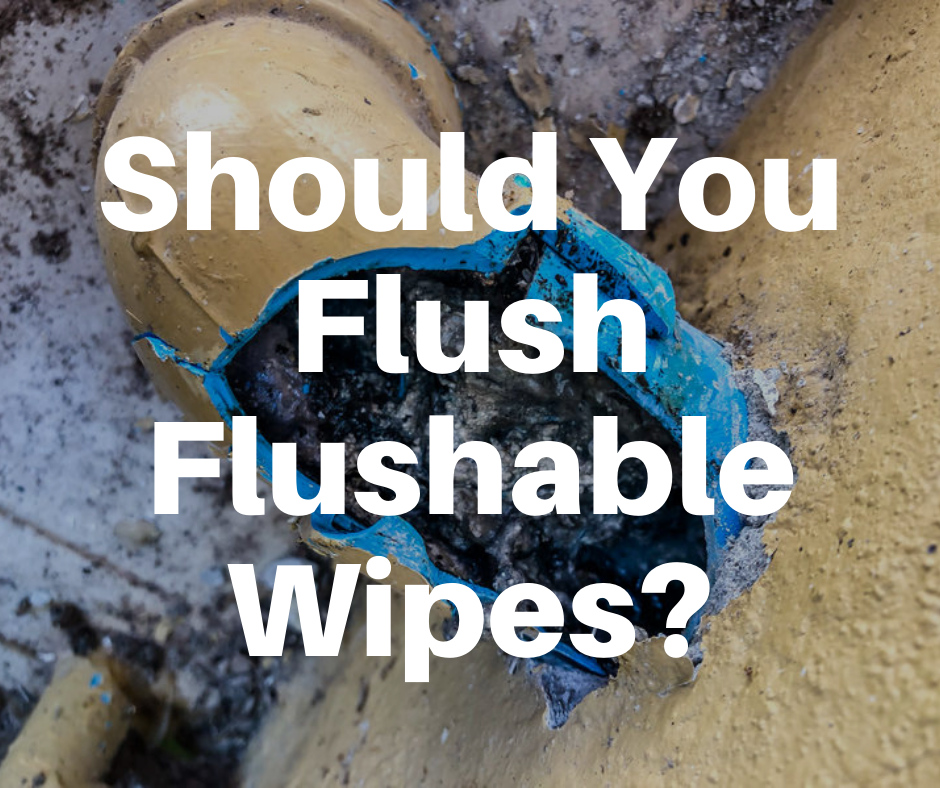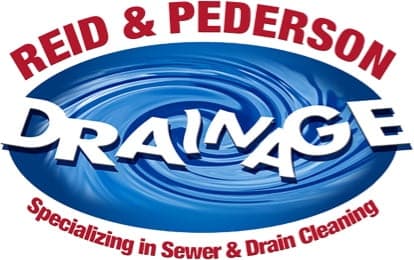A Drainage Minute: The Reid & Pederson Drainage Blog
Can You Flush Flushable Wipes?
The market for disposable wipes in the U.S. is an over $2 billion market, and is poised to reach beyond $3 billion by 2023. With the current global pandemic of coronavirus making its way to the U.S., Americans have been buying toilet paper faster than it can be produced. Because of the shortage of toilet paper, many Americans have turned to flushable wipes to take care of their bathroom needs. And that’s fine, however, there are some important things about these flushable wipes you should remember.

Disposable wet wipes run the gamut – baby wipes, hygienic wipes, cleaning wipes, the list goes on. There is quite a debate on whether or not wipes labeled as “flushable” are truly flushable. Here at Reid & Pederson, we believe that the only things that should be flushed down your toilet are the 3 P’s (we hope we don’t have to spell them out for you!). Let’s break things down and find out exactly what most wet wipes are really made of.
What Are Wipes Made Of?
Baby wipes, hygienic wipes for personal use and cleaning wipes usually consist of non-woven fabric such as cotton or rayon. Using a method where a single sheet of material is cut from a mass of separate fibers, these wipes also contain polyester, polypropylene and/or wood pulp. These microscopic pieces of plastic and wood and their insolubility make it very difficult for wipes of these types to break down in your sewer or septic system…no matter what you’re told. That’s why you should never, ever flush them and instead, throw them in the trash.
Although there are a number of products on the market today that are marketed as being flushable, it’s good knowing what they are made of before flushing them. Most flushable wipes claim to be made of biodegradable tree or plant-based fibers that break down faster. While this may be true, it’s important to understand two things regarding “flushable” wipes.
What Does “Flushable” Even Mean?
First, manufacturers of these wipes are not required to prove flushability of their products. There are no restrictions or regulations put in place today on how these wipes can be marketed and labeled. There’s essentially nothing stopping them from labeling their products however they wish.
Secondly, the tests performed by manufacturers to show the solubility of their products aren’t usually performed under the same conditions as a gently flowing sewer. Manufacturers often perform these tests while putting the wipes under immense pressure and with vigorous shaking and agitation, creating a scenario that shows the wipe breaking down quickly but not under true sewer and septic conditions. These tests are not true “apples-to-apples” comparisons.
In fact, only about 8% of all disposable wipes that are marketed as “flushable” by manufacturers, are actually flushable. A 2013 test conducted by Consumer Reports tested four of the most popular flushable wipe brands versus toilet paper. After ten minutes, the toilet paper was completely dissolved but the wipes remained intact. Ten more minutes and being agitated in a mixer, the wipes still weren’t breaking down. After twelve hours, only two brands of the wipes started to show signs of breaking down. Imagine what all of these wipes are doing to your sewer line! Eventually they create a large blockage and cause a backup and lots of headaches for you.
Fatbergs & Clogged Sewers
Accumulation of baby wipes in a sewer line, coupled with grease, feminine hygiene products, paper towels and other debris can lead to fatbergs, huge masses of solid waste made up of these items. And while the name may sound funny, they’re anything but. Not only are fatbergs unhygienic, but they’re expensive to fix and extremely gross. If you’re so inclined, learn about the giant fatberg found in London in 2017, weighing as much as ELEVEN double-decker London buses!
We’re Here to Help with Your Sewer & Drain Problems!
The bottom line? We see a LOT of wipes when rodding sewers! Although annual preventive sewer maintenance is always your best bet, flushing wipes down your toilet will certainly mean we will be seeing you more than once a year! And remember – for any clogs or backups you’re experiencing, Reid & Pederson is here to help 24 hours a day, 7 days a week – no matter the cause. Give us a call today!
